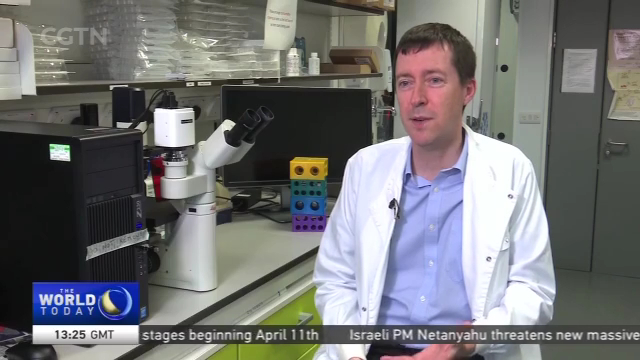
22:24, 10-Mar-2019
AI Medical Application: UK researchers: Artificial intelligence better than doctors at predicting heart failure in humans
Updated
22:20, 13-Mar-2019
02:12

New research suggests computers are better than doctors at predicting which patients are most at risk of heart failure. It used artificial intelligence to spot warning signs that humans could easily miss. Our Jessica King reports on the implications from London.
Heart failure is a disease that affects millions of people worldwide. In the UK, survival rates after diagnosis have modestly improved in the 21st century and lag behind other serious conditions, such as cancer. But research led by a team at Imperial College London and the Medical Research Council is hoping to change that.
4D survival is a computer program which tracks the motion of the heart in 3D, was right at predicting which patients are most at risk from heart failure on 75 percent of occasions, compared with only 59 percent achieved by doctors.
DR. DECLAN O'REGANLEAD RESEARCHER, IMPERIAL COLLEGE LONDON "The surprising thing for us was actually how poor the current tools are, that doctors have available to make predictions about patients. They're relatively crude, they're not very reproducible and they don't really capture the complex engineering, the motion of the heart. Whereas a machine is really good at that."
Studies like these highlight the potential of machine learning and artificial intelligence but they have also triggered concerns about the shifting role of medical professionals.
HELEN STOKES-LAMPARDCHAIR, ROYAL COLLEGE OF GENERAL PRACTITIONERS "Computers will be better than humans in a whole range of tasks because they're extremely good at processing vast quantities of data. What they're not going to do is substitute for a doctor when it comes to looking deep into somebody'e eyes, and recognizing the frailty of the human condition."
The next stage of Imperial's study is to test its effectiveness on several hundred patients. If the results support the initial findings, the aim would be to have it in use in the next five years and help an estimated 920,000 people living with heart failure in the UK.
JESSICA KING LONDON "The UK government has called for the health service to become more 'digital savvy' and to embrace technology. Whilst artificial intelligence systems are not doctors, they are a powerful tool for the medical profession, that could improve patient care and lead to better survival rates. Jessica King, CGTN, London."

SITEMAP
Copyright © 2018 CGTN. Beijing ICP prepared NO.16065310-3
Copyright © 2018 CGTN. Beijing ICP prepared NO.16065310-3